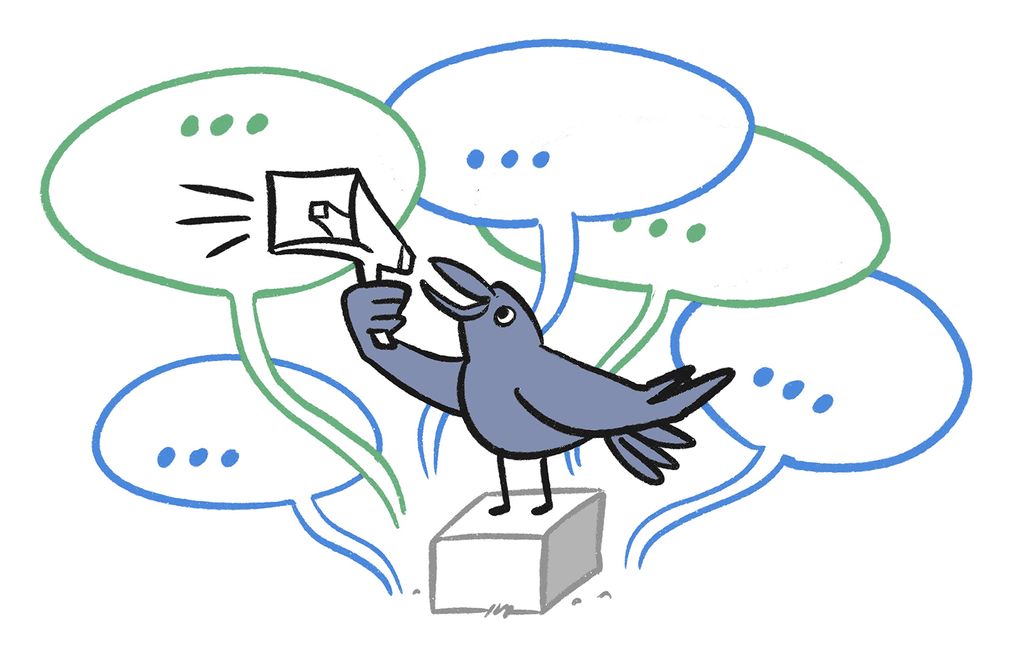Health
Egg-freezing is ‘exploding’ among some age groups — here’s what women must know
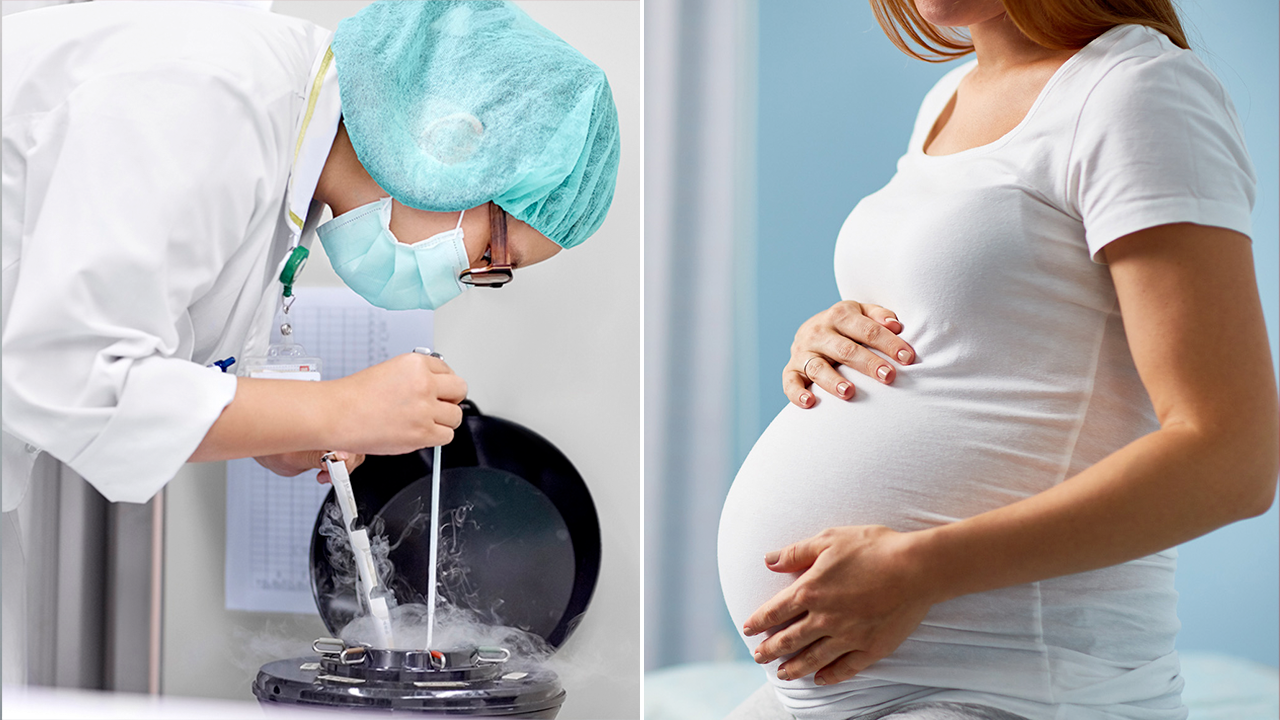
Women around the world are choosing to freeze their eggs (a process known as oocyte cryopreservation) more frequently. This is especially true among the youngest adult generations.
The number of egg-freezing cycles increased from 16,786 in 2020 to 24,558 in 2021, according to a U.S.-based study from the Society of Assisted Reproductive Technology, which is based in Birmingham, Alabama.
Between 2019 and 2021, there was a nearly 64% increase in egg storage cycles, according to study data from the U.K.-based Human Fertilisation and Embryology Authority (HFEA).
PREGNANT WOMEN STRUGGLE TO FIND CARE IN ‘MATERNITY DESERTS,’ NEW STUDY FINDS
Meanwhile, the topic of egg freezing has nearly 75 million views on TikTok, as those of younger ages are being exposed to the trend.
Women around the world are choosing to freeze their eggs more frequently, especially among the youngest adult generations. (iStock)
Nearly three in five surveyed Gen Zers and millennials admitted to being worried about their fertility, California-based HRC Fertility shared in an email with Fox News Digital.
“Women are remaining single longer and considering starting a family later in life.”
Women’s health and fertility experts weighed in on the egg-freezing boom within these younger demographics, including Dr. Cynthia Flynn, who told Fox News Digital that the procedure is “exploding.”
Egg freezing is becoming more popular as women learn more about the procedure and are putting off having kids, the Florida-based OB/GYN said.

Dr. Cynthia Flynn is a Florida-based, board-certified OB/GYN with more than 20 years of experience in women’s reproductive health. She said the egg-freezing procedure is “exploding.” (JustAnswer)
“In addition, women are remaining single longer and considering starting a family later in life,” she said.
Flynn, who is also a provider with the San Francisco-based Q&A platform JustAnswer, suggested that while most women who are freezing their eggs are in their 30s or older, younger women might choose to do so because of “long-term reasons for delaying childbearing.”
SISTERS IN SYNC: 4 ARE PREGNANT AT THE SAME TIME WITH THEIR BABIES, IN ‘COMPLETE SHOCK’
“Most women who freeze their eggs may have determined that single parenting is not a choice for them right now, and a partner is not in the current life picture,” she said.
Dr. Ruth O. Arumala, co-chief medical officer of Chicago-based Zuri Fertility, echoed this remark in an email sent to Fox News Digital, mentioning that Gen Z and millennial women are delaying having kids to focus on their careers.
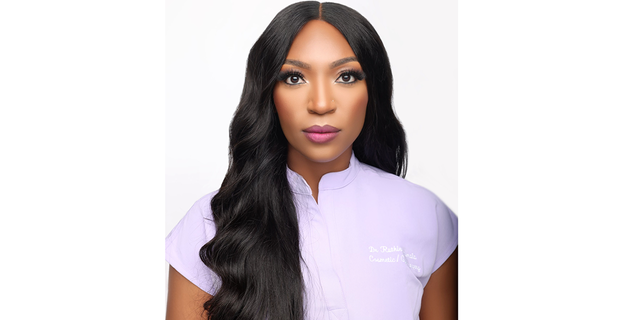
Dr. Ruth O. Arumala, co-chief medical officer for Chicago-based Zuri Fertility, specializes in female fertility. Many of the women who are freezing their eggs today, she said, “cite the need for financial stability” before they have kids. (Zuri Fertility)
“Many cite the need for financial stability prior to having children,” she said.
“Others state the poor availability of compatible partners suitable for long-term relationships such as marriage.”
“The success rate is dependent on a woman’s age at the time of retrieval. Women who are older need more eggs frozen to have a better chance at a live birth.”
Advanced reproductive technology and information on egg freezing, as well as effective birth control methods, have ramped up egg storage popularity, Arumala said.
What to know about freezing your eggs
Egg freezing doesn’t always guarantee a baby, Flynn and Arumala both said.
“The eggs are frozen in a very fragile stage of development, and much can happen during the thawing process,” Flynn said.
“It’s never a guarantee of a live birth.”
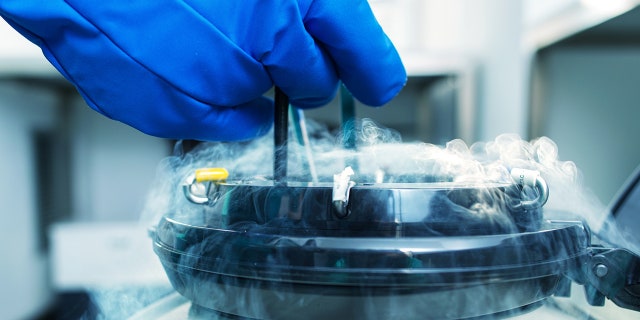
More young women are choosing to freeze their eggs and delay childbearing due to career and lifestyle factors. (iStock)
More than one retrieval may be necessary for certain family sizes, Arumala added.
The success of the egg-thawing procedure is “dependent on the lab’s technique,” she said.
AI BABIES: NEW TECHNOLOGY IS HELPING FERTILITY DOCS CHOOSE THE BEST EMBRYOS FOR IVF
The procedure does work about 75% of the time, according to Flynn, although some women are unable to produce sufficient eggs to “make retrieval worthwhile.”
“The success rate is dependent on a woman’s age at the time of retrieval,” she said. “Women who are older need more eggs frozen to have a better chance at a live birth.”
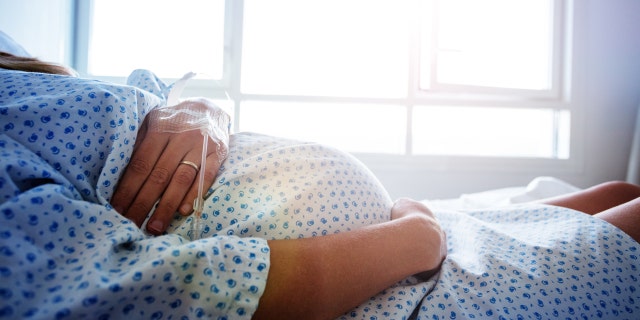
Egg freezing does not guarantee a live birth, according to fertility experts. (iStock)
“Among all ages, women who have 20-30 eggs frozen have about a 75% chance at a live birth in the future,” Flynn also said.
Other factors that could interfere with the process include poor egg quality as well as maternal, anatomical, hormonal or medical issues, Arumala said.
Costs of freezing eggs
Egg freezing can be “very expensive,” Flynn admitted, though some insurance policies may cover part of it.
The process could cost up to $20,000, depending on location, she said.
AIR FORCE VET WHO BATTLED TOUGH FERTILITY ISSUE TELLS OTHERS ‘KNOWLEDGE IS POWER’
Some programs may offer financial support, Arumala pointed out.
Although ovarian hyperstimulation, bleeding and infection can occur in rare cases, Flynn said the medical risks of egg freezing are small.
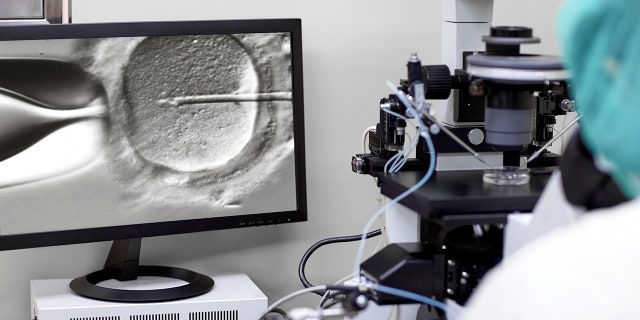
The process of achieving a healthy pregnancy from frozen eggs includes several steps. (iStock)
“There is minimal risk involved in freezing your eggs,” she said. “It’s a personal decision based on personal values and necessary finances at the time.”
There is no way to determine egg quality until fertilization occurs, Arumala warned.
NEW YORK MOM DESCRIBES HAVING A BABY AFTER CANCER: ‘SCIENCE IS INCREDIBLE’
“However, the younger the patient, the better the egg quality,” she said. “This is why women are encouraged to freeze their eggs at younger ages.”
She also said, “In addition, poor quality eggs tend not to mature appropriately. This is not a foolproof method.”

About 75% of egg freezing procedures are successful, according to experts. (iStock)
Eggs that are frozen then have to make it through multiple steps to reach a healthy pregnancy, including egg thawing, fertilization, embryo growth, transfer and implantation.
Flynn encouraged women looking to freeze their eggs to have a long-term plan for what action should be taken if the eggs are never used — such as donation.
Arumala agreed, adding that this could become an “ethical dilemma.”

Two fertility experts encouraged women to create a long-term plan for what should happen if their frozen eggs go unused. (iStock)
“Spending time with your fertility specialist to explore scenarios if the eggs are not viable may be helpful prior to and during the procedure,” Arumala said.
The fertility specialist added that this process may “take a toll on an individual’s or couple’s mental and relationship health” — which is why she recommended that people seek counseling from a professional as needed.

Health
Kennedy’s Plan for the Drug Crisis: A Network of ‘Healing Farms’

Though Mr. Kennedy’s embrace of recovery farms may be novel, the concept stretches back almost a century. In 1935, the government opened the United States Narcotic Farm in Lexington, Ky., to research and treat addiction. Over the years, residents included Chet Baker and William S. Burroughs (who portrayed the institution in his novel, “Junkie: Confessions of an Unredeemed Drug Addict”). The program had high relapse rates and was tainted by drug experiments on human subjects. By 1975, as local treatment centers began to proliferate around the country, the program closed.
In America, therapeutic communities for addiction treatment became popular in the 1960s and ’70s. Some, like Synanon, became notorious for cultlike, abusive environments. There are now perhaps 3,000 worldwide, researchers estimate, including one that Mr. Kennedy has also praised — San Patrignano, an Italian program whose centerpiece is a highly regarded bakery, staffed by residents.
“If we do go down the road of large government-funded therapeutic communities, I’d want to see some oversight to ensure they live up to modern standards,” said Dr. Sabet, who is now president of the Foundation for Drug Policy Solutions. “We should get rid of the false dichotomy, too, between these approaches and medications, since we know they can work together for some people.”
Should Mr. Kennedy be confirmed, his authority to establish healing farms would be uncertain. Building federal treatment farms in “depressed rural areas,” as he said in his documentary, presumably on public land, would hit political and legal roadblocks. Fully legalizing and taxing cannabis to pay for the farms would require congressional action.
In the concluding moments of the documentary, Mr. Kennedy invoked Carl Jung, the Swiss psychiatrist whose views on spirituality influenced Alcoholics Anonymous. Dr. Jung, he said, felt that “people who believed in God got better faster and that their recovery was more durable and enduring than people who didn’t.”
Health
Children exposed to higher fluoride levels found to have lower IQs, study reveals
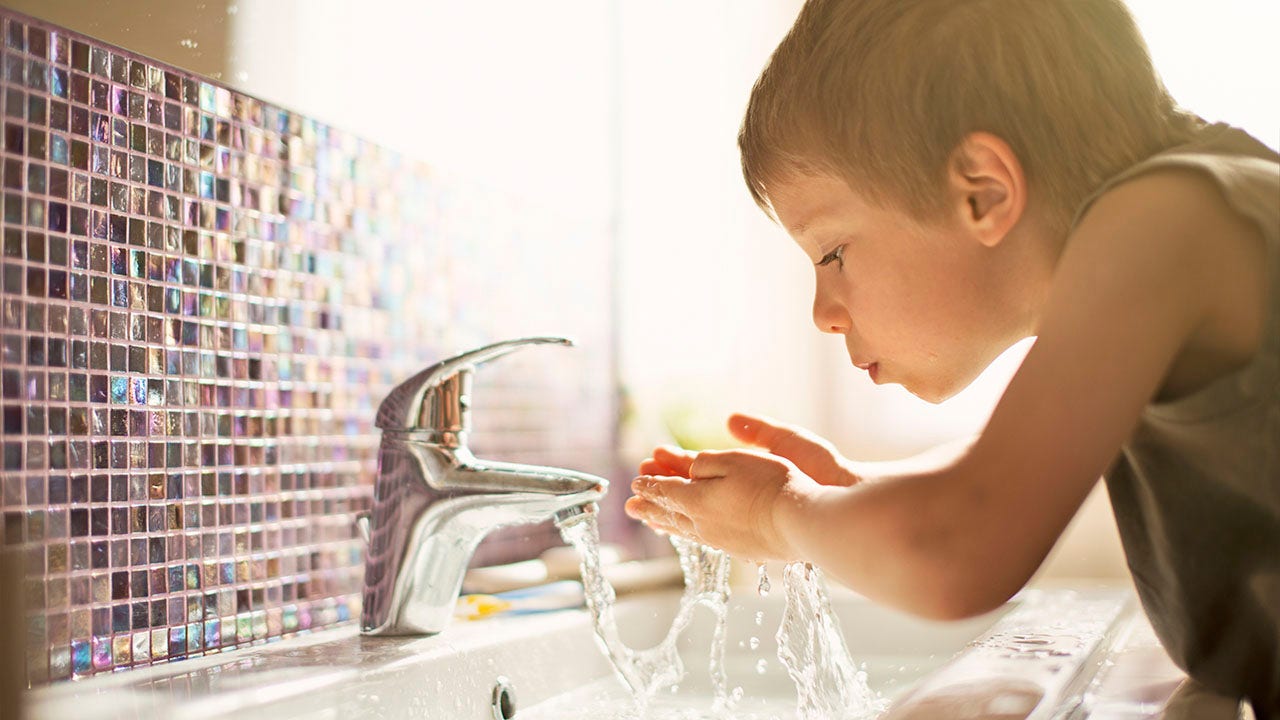
The debate about the benefits and risks of fluoride is ongoing, as RFK Jr. — incoming President Trump’s pick for HHS secretary — pushes to remove it from the U.S. water supply.
“Fluoride is an industrial waste associated with arthritis, bone fractures, bone cancer, IQ loss, neurodevelopmental disorders and thyroid disease,” RFK wrote in a post on X in November.
A new study published in JAMA Pediatrics on Jan. 6 found another correlation between fluoride exposure and children’s IQs.
RFK JR. CALLS FOR REMOVAL OF FLUORIDE FROM DRINKING WATER, SPARKING DEBATE
Study co-author Kyla Taylor, PhD, who is based in North Carolina, noted that fluoridated water has been used “for decades” to reduce dental cavities and improve oral health.
Fluoride exposure has been linked to a variety of negative health effects, yet benefits oral health. (iStock)
“However, there is concern that pregnant women and children are getting fluoride from many sources, including drinking water, water-added foods and beverages, teas, toothpaste, floss and mouthwash, and that their total fluoride exposure is too high and may affect fetal, infant and child neurodevelopment,” she told Fox News Digital.
The new research, led by scientists at the National Institute of Environmental Health Sciences (NIEHS), analyzed 74 epidemiological studies on children’s IQ and fluoride exposure.
FEDERAL JUDGE ORDERS EPA FURTHER REGULATE FLUORIDE IN DRINKING WATER DUE TO CONCERNS OVER LOWERED IQ IN KIDS
The studies measured fluoride in drinking water and urine across 10 countries, including Canada, China, Denmark, India, Iran, Mexico, Pakistan, New Zealand, Spain and Taiwan. (None were conducted in the U.S.)
The meta-analysis found a “statistically significant association” between higher fluoride exposure and lower children’s IQ scores, according to Taylor.
“[It showed] that the more fluoride a child is exposed to, the more likely that child’s IQ will be lower than if they were not exposed,” she said.
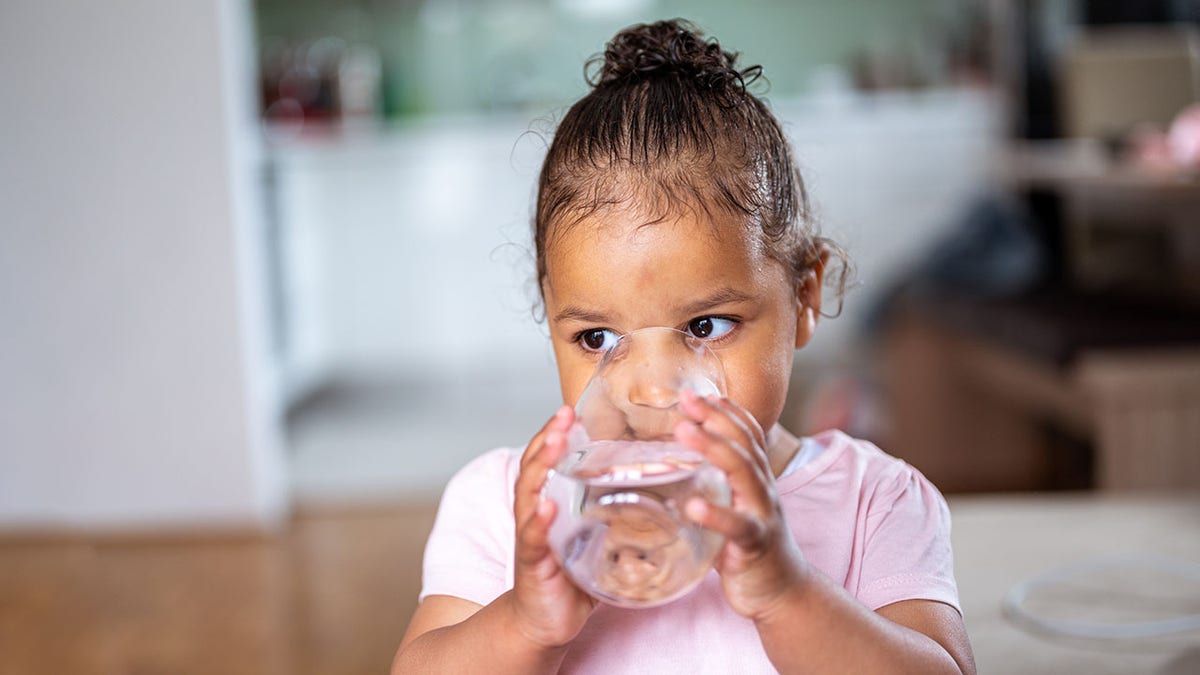
Scientists found a “statistically significant association” between higher fluoride exposure and lower children’s IQ scores. (iStock)
These results were consistent with six previous meta-analyses, all of which reported the same “statistically significant inverse associations” between fluoride exposure and children’s IQs, Taylor emphasized.
The research found that for every 1mg/L increase in urinary fluoride, there was a 1.63-point decrease in IQ.
‘Safe’ exposure levels
The World Health Organization (WHO) has established 1.5mg/L as the “upper safe limit” of fluoride in drinking water.
“There is concern that pregnant women and children are getting fluoride from many sources.”
Meanwhile, the U.S. Public Health Service recommends a fluoride concentration of 0.7 mg/L in drinking water.
“There was not enough data to determine if 0.7 mg/L of fluoride exposure in drinking water affected children’s IQs,” Taylor noted.
FDA BANS RED FOOD DYE DUE TO POTENTIAL CANCER RISK
Higher levels of the chemical can be found in wells and community water serving nearly three million people in the U.S., the researcher noted.
She encouraged pregnant women and parents of small children to be mindful of their total fluoride intake.
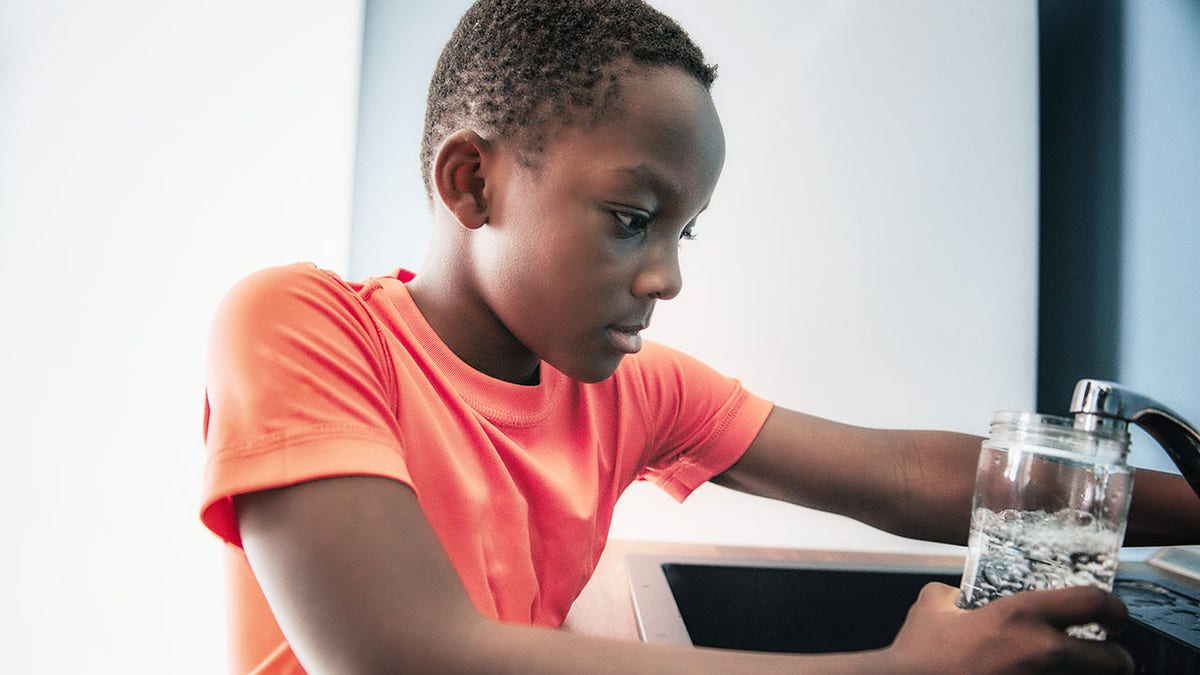
Nearly three million people have access to wells and community water with fluoride levels above the levels suggested by the World Health Organization. (iStock)
“If their water is fluoridated, they may wish to replace tap water with low-fluoride bottled water, like purified water, and limit exposure from other sources, such as dental products or black tea,” she said.
“Parents can use low-fluoride bottled water to mix with powdered infant formula and limit use of fluoridated toothpaste by young children.”
For more Health articles, visit www.foxnews.com/health.
While the research did not intend to address broader public health implications of water fluoridation in the U.S., Taylor suggested that the findings could help inform future research into the impact of fluoride on children’s health.
Dental health expert shares cautions
In response to this study and other previous research, Dr. Ellie Phillips, DDS, an oral health educator based in Austin, Texas, told Fox News Digital that she does not support water fluoridation.
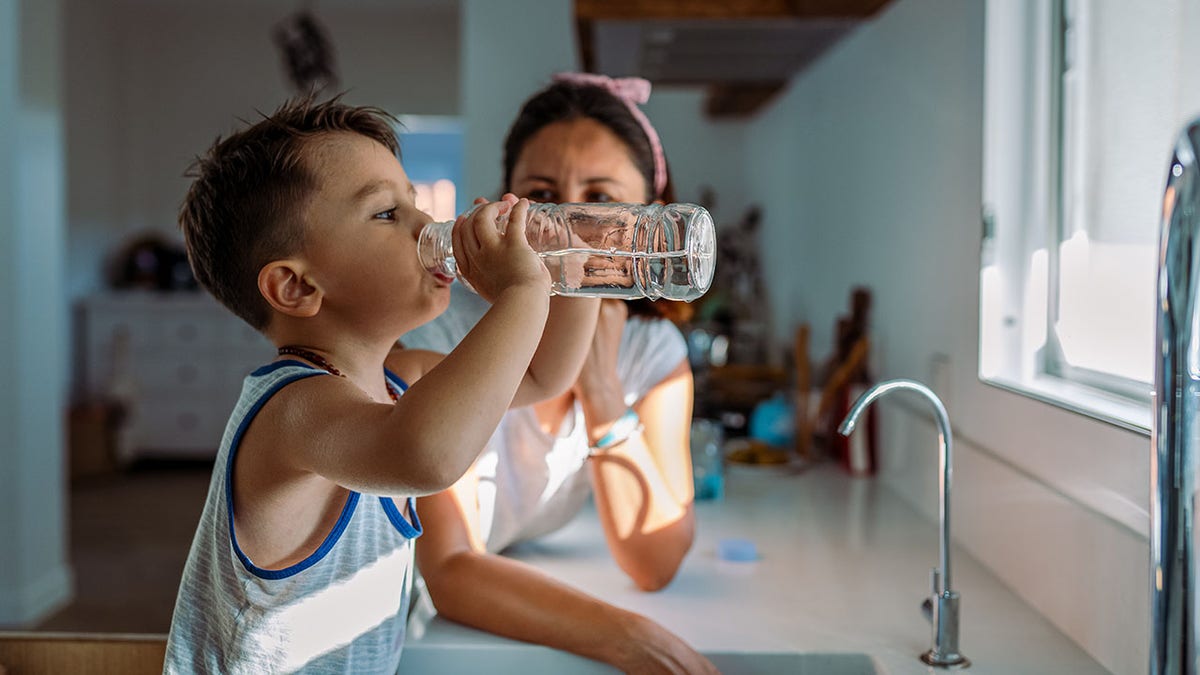
The study researcher encouraged parents of small children to be mindful of their total fluoride intake. (iStock)
“I join those who vehemently oppose public water fluoridation, and I question why our water supplies are still fluoridated in the 21st century,” she wrote in an email.
“There are non-fluoridated cities and countries where the public enjoy high levels of oral health, which in some cases appear better than those that are fluoridated.”
CLICK HERE TO SIGN UP FOR OUR HEALTH NEWSLETTER
Phillips called the fluoride debate “confusing” even among dentists, as the American Dental Association (ADA) advocates for fluoride use for cavity prevention through water fluoridation, toothpaste and mouthwash — “sometimes in high concentrations.”
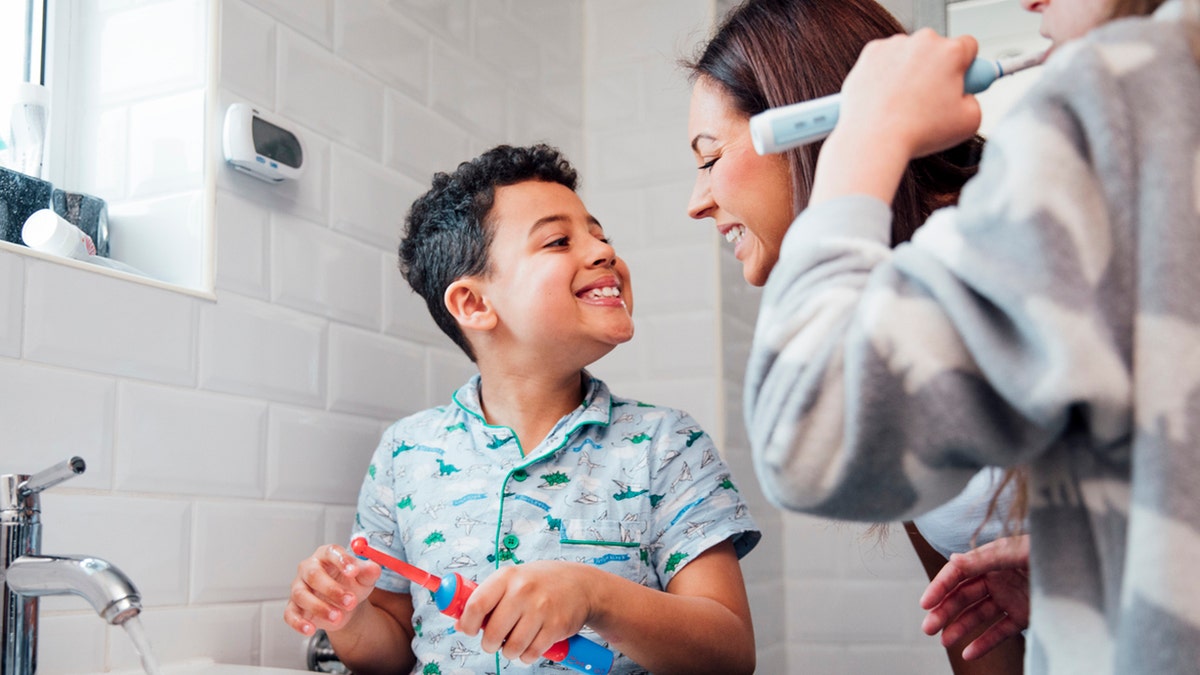
Fluoride is used in water, toothpaste and mouthwash to help prevent cavities. (iStock)
“[But] biologic (holistic) dentists generally encourage their patients to fear fluoride and avoid its use entirely, even if their teeth are ravaged by tooth decay,” she said.
“Topical fluoride is beneficial, while systemic consumption poses risks.”
Phillips encouraged the public to consider varying fluoride compounds, the effect of different concentrations and the “extreme difference” between applying fluoride topically and ingesting it.
“Topical fluoride is beneficial, while systemic consumption poses risks,” she cautioned.
“Individuals must take charge of their own oral health using natural and informed strategies.”
The study received funding from the National Institute of Environmental Health Sciences (NIEHS), the National Institutes of Health (NIH) and the Intramural Research Program.
Health
Treating Other Diseases With Ozempic? Experts Weigh In | Woman's World

Sign Up
Create a free account to access exclusive content, play games, solve puzzles, test your pop-culture knowledge and receive special offers.
Already have an account? Login
Use left and right arrow keys to navigate between menu items.
Use escape to exit the menu.
-
/cdn.vox-cdn.com/uploads/chorus_asset/file/25822586/STK169_ZUCKERBERG_MAGA_STKS491_CVIRGINIA_A.jpg)
/cdn.vox-cdn.com/uploads/chorus_asset/file/25822586/STK169_ZUCKERBERG_MAGA_STKS491_CVIRGINIA_A.jpg) Technology1 week ago
Technology1 week agoMeta is highlighting a splintering global approach to online speech
-

 Science7 days ago
Science7 days agoMetro will offer free rides in L.A. through Sunday due to fires
-
/cdn.vox-cdn.com/uploads/chorus_asset/file/23935558/acastro_STK103__01.jpg)
/cdn.vox-cdn.com/uploads/chorus_asset/file/23935558/acastro_STK103__01.jpg) Technology7 days ago
Technology7 days agoAmazon Prime will shut down its clothing try-on program
-

 News1 week ago
News1 week agoMapping the Damage From the Palisades Fire
-

 News1 week ago
News1 week agoMourners Defy Subfreezing Temperatures to Honor Jimmy Carter at the Capitol
-
/cdn.vox-cdn.com/uploads/chorus_asset/file/25826211/lorealcellbioprint.jpg)
/cdn.vox-cdn.com/uploads/chorus_asset/file/25826211/lorealcellbioprint.jpg) Technology6 days ago
Technology6 days agoL’Oréal’s new skincare gadget told me I should try retinol
-
/cdn.vox-cdn.com/uploads/chorus_asset/file/25832751/2192581677.jpg)
/cdn.vox-cdn.com/uploads/chorus_asset/file/25832751/2192581677.jpg) Technology3 days ago
Technology3 days agoSuper Bowl LIX will stream for free on Tubi
-

 Business4 days ago
Business4 days agoWhy TikTok Users Are Downloading ‘Red Note,’ the Chinese App

